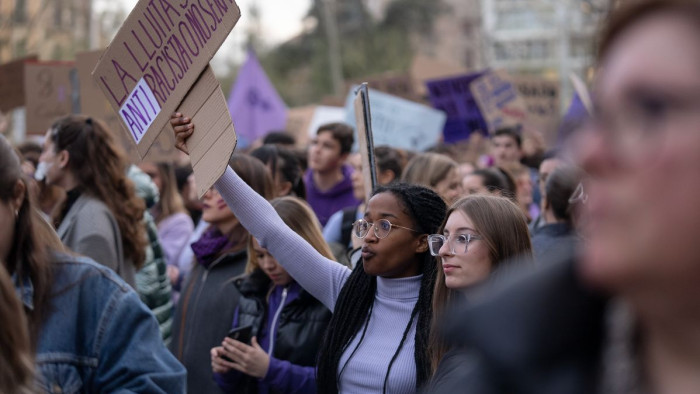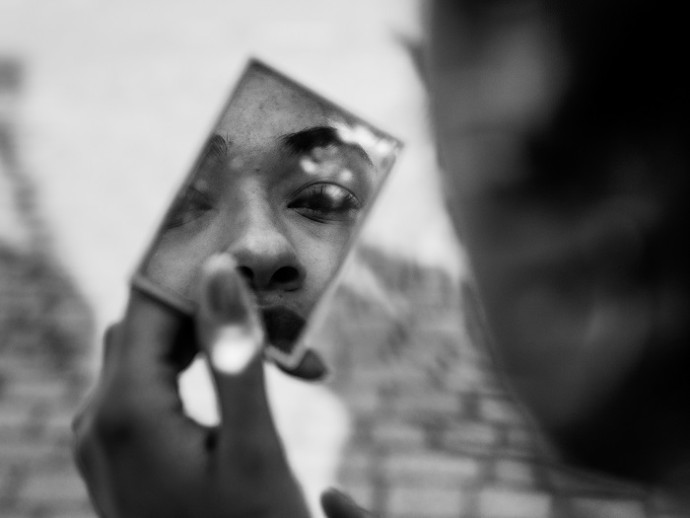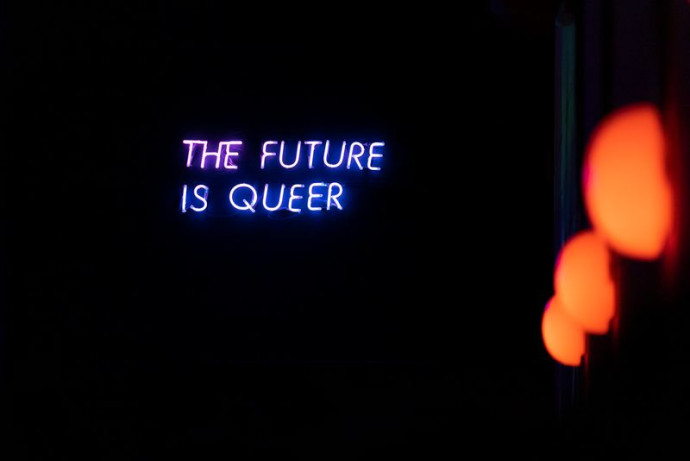ITINERARY. Gender
Questions of gender continue to occupy an important space in the aim of analyzing and questioning the unstable world of today and tomorrow. The reasons why they form an endless debate are diverse, but some considerations can help explain this. The most obvious is probably that it is a dimension that permeates all aspects of life: from the home to work, education, or health. On the other hand, it is also noted that, far from being a monolithic perspective, feminist voices are very heterogeneous. They often complement each other, but also, not infrequently, they rub against one another.
These viewpoints, as is natural, are not something sealed in a vacuum, isolated from the other issues that cleave societies, but rather they overlap. The decolonial lens converges here with some regularity, and in this Biennial, it does not go unnoticed. At this crossroads, Nigerian professor Oyèrónké Oyèwùmi serves as an authoritative and influential voice in incorporating an African perspective into Western reflections on gender identities. She is one of the two protagonists of the session on Feminisms; the other, Italian philosopher Chiara Bottici, particularly hovers over the intersection between feminism and (anti)capitalism and is known for her use of the concept of anarchafeminism, with which she denounces that capitalism has needed women to carry out unpaid tasks.
If we seek a complement to the previous session, or rather the other way around, because it is held a few hours earlier, Capitalism, care, and time evidences from its title that it addresses borderline issues. American professor Joan C. Tronto advocates in Caring Democracy for conceiving freedom and equality from the perspective of making care more just, combating the deviation that gender, race, and class still exert today. Next to her will sit Swedish professor Carl Cederström, for whom issues like the growing aspirations for individual well-being are perverted by a system that encourages them while squeezing people's productive capacity.
Sometimes public reflections and debates remain outside the intimate sphere, but issues like consent have allowed various aspects of female sexuality to find their spaces for discussion. Desire is a rich concept in philosophical, political, and moral resonances, and many thinkers and creators have recently engaged with it: in the conversation Insubordinate desire, filmmaker Elena Martín, thinker Clara Serra, and journalist Anna Pazos will embrace its complexity and contradictory potential.
Power and space: violence, queer, and disability raises less common intersections of gender issues thanks to the presence of Jasbir Puar, an American professor who has been at the forefront of research and thought on the links between space, violence, and sexuality for years. Her conversation with anthropologist Ignacio E. Domínguez, focused on queer studies, will surely broaden our horizons of reflection.
As a backdrop for more artistic activities, considerations on gender issues will also prominently appear in Humor Negra, the afrofeminist monologue by Asaari Bibang (recommended for ages 14 and up), where she showcases her comedic talent to speak from her identity as a woman, migrant, and Black person. Or in THEBADWEEDS, a choreographic performance created by Rocío Berenguer with a transspecies musical group that is, in reality, an ode to everything that is in transition.





